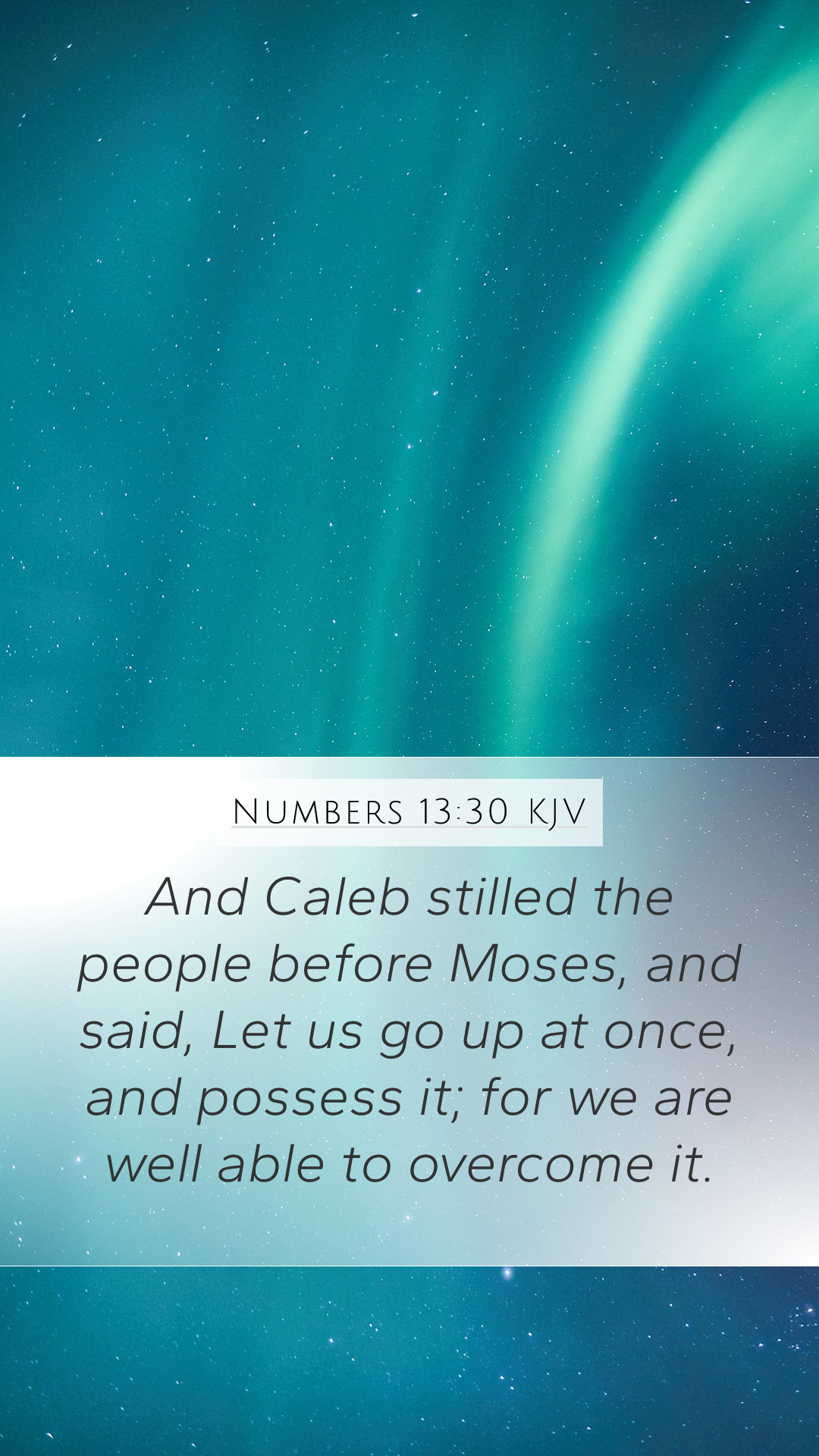Understanding Numbers 13:30
In Numbers 13:30, we find a pivotal moment in the history of Israel as spies return from scouting the land of Canaan. This verse records Caleb's bold declaration, "Let us go up at once, and possess it; for we are well able to overcome it." This statement serves as a significant juxtaposition against the fear and doubt expressed by the other spies. Below we will explore the rich meanings and interpretations provided by public domain commentaries, shedding light on the verse’s deeper understanding.
Bible Verse Meanings
This verse illustrates Caleb's faith in God's promise. While the majority of the spies are filled with fear, Caleb demonstrates unwavering confidence, emphasizing the importance of trust in God's power. His boldness inspires a deeper look into themes of faith, courage, and divine promise within the context of Israel's journey.
Bible Verse Interpretations
- Faith Over Fear: Caleb’s response can be interpreted as a challenge to the fear of the masses, emphasizing the necessity of faith in overcoming obstacles.
- God’s Promises: This verse serves as a reminder of God’s promises to the Israelites, affirming that with divine support, they can claim the land promised to them.
- Leadership and Confidence: Caleb’s confidence might be seen as indicative of true leadership among God’s people, encouraging a collective move towards faith and action.
Bible Verse Understanding
Understanding this scripture requires an examination of the broader narrative in Numbers. The context includes the larger story of the Israelites' journey from slavery in Egypt to the brink of the Promised Land. Caleb’s proclamation stands firm in launching the nation into action based on trust rather than fear.
Bible Verse Explanations
According to Matthew Henry, Caleb’s assertion reflects the strength of faith and the pacifying power that comes from God. Henry emphasizes that Caleb’s perspective is rooted in confidence derived from personal experiences with God.
Albert Barnes points out that Caleb and Joshua ultimately represent a faithful remnant among a rebellious generation, showing the contrast between belief and skepticism.
Adam Clarke elaborates on the significance of Caleb’s faith compared to the apprehension of others, noting that this moment is emblematic of human tendencies toward doubt despite divine assurances.
Scripture Analysis
The verse demonstrates profound lessons about how belief can influence collective action. Caleb’s faith not only encourages self-reliance but also trust in God’s provision. Each interpretation reveals layers of meaning regarding the character of God and His expectations of His followers.
Applying the Verse to Daily Life
The truths in Numbers 13:30 can be practically applied to everyday challenges. When faced with difficulties or daunting tasks, believers are encouraged to look to God and remember His faithfulness, exemplified by Caleb. The application of faith can transform perspectives, leading to a more proactive and hopeful approach to life’s challenges.
Cross References
- Deuteronomy 1:36: Highlights God’s promise to Caleb and his reward for faithfulness.
- Joshua 14:6-14: Chronicles Caleb’s request for his inheritance of the land as a reward for his faith.
- Romans 8:31: Encourages believers that if God is for us, who can be against us?


